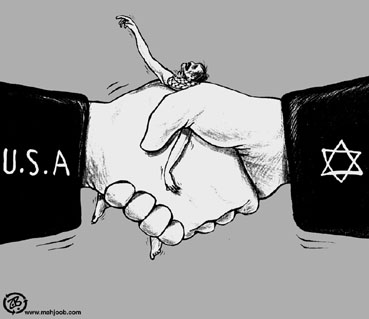.
Posted on September 30, 2011.

I don’t think anyone who packed their bags for New York is ready for the first of several diplomatic rounds that will require coordinated leadership. The way to becoming a member state of the United Nations may be long, and perhaps there will exist a moment of distrust in reaching two valid, stable agreements. The following two things are at the heart of operative political action: First, there is not the slightest chance of reaching a peace agreement with the government of Benjamin Netanyahu; Second, the United States will not hesitate to use the veto in favor of its pampered companion Israel, especially in this recent election.
The United States has used this enshrined right in the Security Council 40 times previously, with respect to various aspects of Middle East conflicts. America received a one-time Arab reaction after it disturbed its relations with the countries in the region with routine breadth and depth. All this, despite there being an accepted party who will mediate this historic conflict. The United States has more or less helped contain the conflict, not resolve it, of course in a manner that favors the most expensive Israeli policies.
However this time, as has not been the case every time before, the United States has appeared willing to distance itself from using the veto while also searching for the appropriate solutions necessary to avoid being embarrassed. This resulted from a critical variable, the Arab Spring, which the U.S. is claiming to have fathered despite a rush of events that have drastically changed the political geography of the region.The reality is that the veto in this case is final, which is not a false claim as some believe. The U.S. is taking bets on the implications of this long spring.
These things do not indicate that the U.S. will totally employ its diplomatic capabilities to prevent the Palestinians’ request to the U.N. Security Council. The United States’ goal is to indefinitely avoid voting on the issue, even if the request is in the hands of the Security Council. This proves that the United States, in essence, is the “veto”. For the first time, Washington is charged with being unable to pay its entitlements or automatically use them as liberally as it did throughout past decades. These actions are no longer possible because they will cause serious and far-reaching damage in that great country. These actions are also responsible for breaking the chains of oppression in America’s public streets and parks.
Thus, the question is not about what happened in the halls of the United Nations nor on the quest for propriety, whether it is right or not. What is about to happen in the next segment of political, popular and Arab reactions is known. It has become obvious through the United States’ only blind bias toward an occupying state (which is generally Western), that concerns will be tested, especially in the Eurozone. These policies will ignite a new wave of extremism. History can no longer serve as a basis for interpretation; the way to negotiating bilateral peace has surely been blocked.
From here on, many elements of the future picture will come together completely, especially based on how the Americans will manage the Arabs and Palestinians. A new crisis has been born of the old crisis, and it requires a change in the non-traditional approach, because most alterations in this process have been exhausted. Furthermore, the United States has won the majority of its initial bets, even with its use of shifty dialogue. It deferred its price on self-paid accounts gaining outstanding internal benefits. It has acted as the historical secretariat to the people with an innate sense of using its command to manage its vision of heaven on Earth.

Leave a Reply
You must be logged in to post a comment.